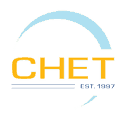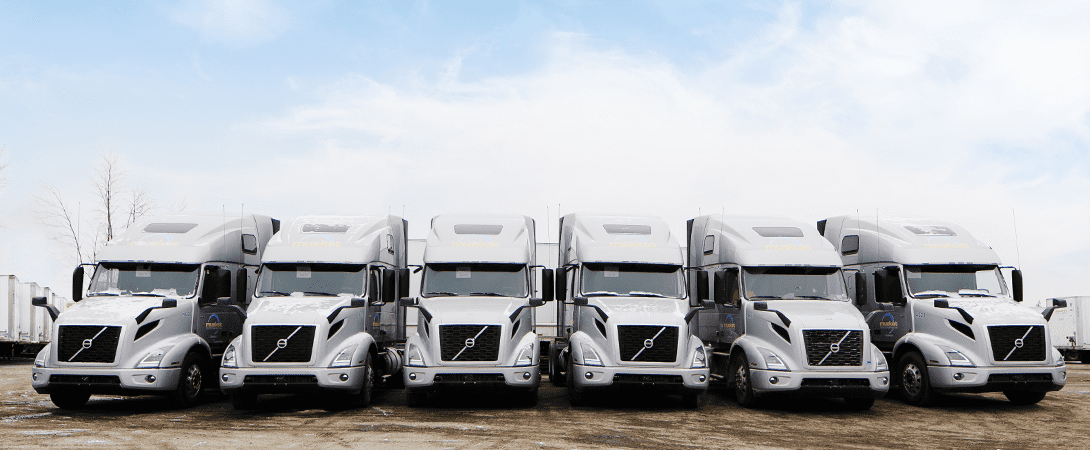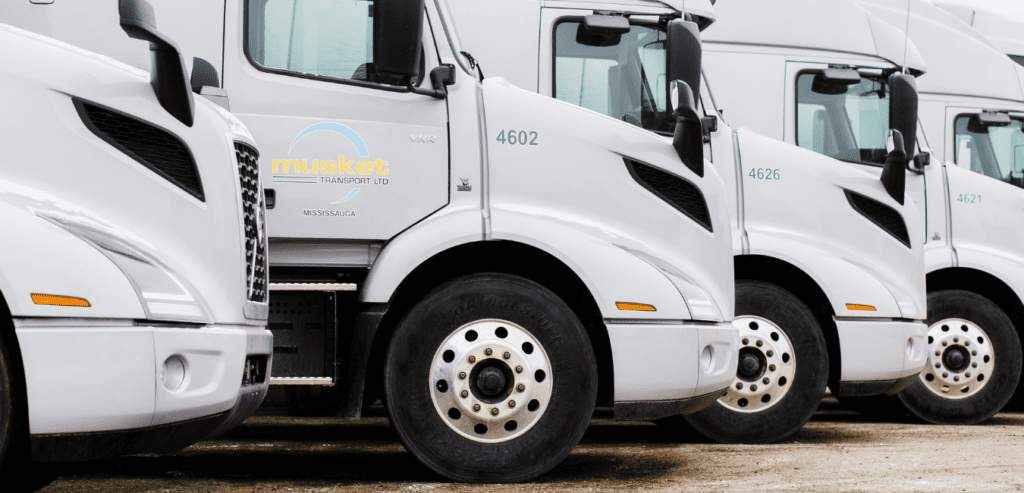
When many people hear of advancements in technology, they can’t help but picture an apocalyptic future where the machines are taking over and Arnold Schwarzenegger is our only hope. However, technological advancement, particularly as it relates to trucking and transportation, should not be a scary concept for anyone, particularly those who work in the industry.
While the advancement of self-driving cars like Tesla may give people pause as to how large-scale transportation could also become automated, we’re still a long way from that type of technology. A panel at a Truckload Carriers Association convention in March of this year discussed the concept of drivers being replaced by automated vehicles and dismissed the notion quickly. The goal of autonomous trucking is not to remove drivers, but to better provide solutions for the more dangerous and boring parts of the job to help improve the overall lifestyle and processes.
Advancement in technology for both training and deployment of drivers is something Musket cares greatly about, and it takes constant intentional steps to embrace new tech as it emerges. Particularly if it’ll benefit the students at CHET, the Musket driving fleet, and the industry as a whole.
 “With technology progressing at an unstoppable rate, it’s our duty to try and stay updated as best we can,” stated Anthony Dyal, Fleet Resources Manager for The Musket Transport Ltd. “We check-in for updates regularly with our vendors (Vision Truck Group, Bendix, etc.) and major manufacturers (SAF-Holland, Fifth Wheel Freight, Stemco, Meritor, etc.) by way of webinars and, before the pandemic, in-house training sessions. Mechanic applicants are also increasingly informed of new and innovative technologies, as they stay up-to-date with online resources and relevant events.”
“With technology progressing at an unstoppable rate, it’s our duty to try and stay updated as best we can,” stated Anthony Dyal, Fleet Resources Manager for The Musket Transport Ltd. “We check-in for updates regularly with our vendors (Vision Truck Group, Bendix, etc.) and major manufacturers (SAF-Holland, Fifth Wheel Freight, Stemco, Meritor, etc.) by way of webinars and, before the pandemic, in-house training sessions. Mechanic applicants are also increasingly informed of new and innovative technologies, as they stay up-to-date with online resources and relevant events.”
The application for new technology doesn’t stop at driving. It also expands into diagnostic tools for mechanics and advances in trailer technology for tracking, refrigeration, and more.
“Among the technology we’ve acquired to aid our mechanics are live internal electronic work orders, a new alignment rack, new wheel balancing machines, new Jaltest multibrand diagnostic tool, and new Volvo tech tool,” said Dyal. “We’ve also grown our equipment considerably, with new VNR 660 Regional Trucks, 2 brand new Hyster HR45-27 Container Handlers, 100 brand new trailers, 20 new reefer trailers, 50 new Max-Atlas Quad Axles, and 50 new SCGC Gensets.”
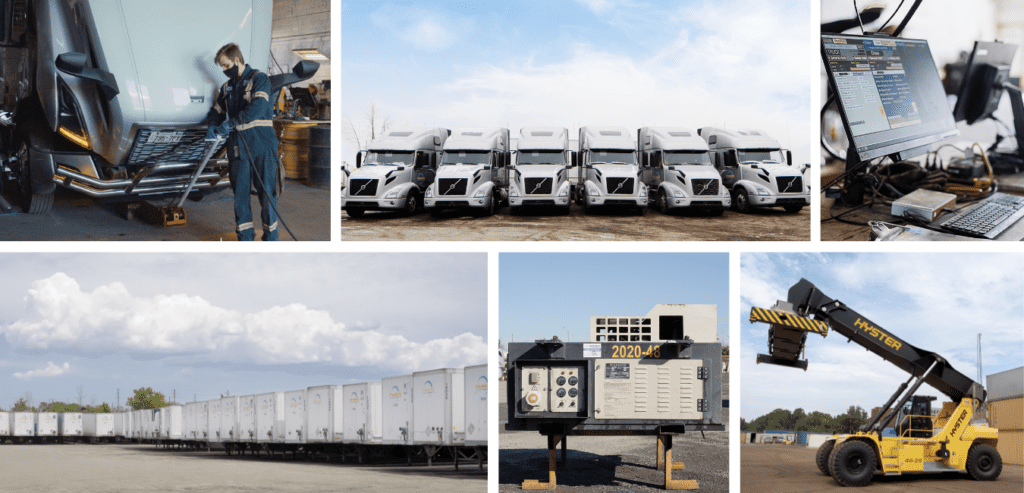
“The new equipment and technology we’ve acquired lends itself to easier remote electronic monitoring and diagnostics. This allows drivers to communicate more seamlessly with dispatch when they encounter problems on the road, and allows dispatch to be looped in remotely, to monitor temperature levels of reefer trailers for instance.”
More and more companies, Musket Transport included, are coming to the realization that it’s an exciting time to be in the transportation industry. Volvo Trucks is the first and only OEM in North America making, selling, and servicing fully electric, battery-powered heavy-duty trucks.
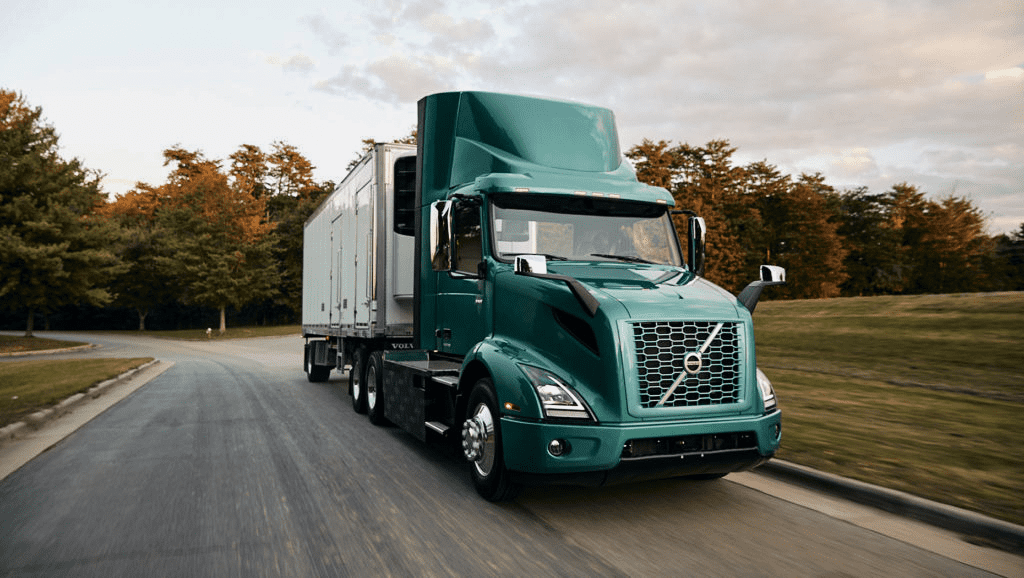
With the introduction of electric trucks, new and exciting career opportunities are available for licensed drivers and truck/trailer mechanics. For drivers, electromobility brings a better working environment in the truck cab with less noise, helping to lower stress and reduce fatigue.
For truck/trailer mechanics, new opportunities to use creative problem-solving skills will help ensure customers are on the road with no issues or setbacks. The introduction of The Volvo VNR Electric provides the opportunity to help develop electric fleets that have a significantly lower impact on the environment.
As a partner in the City Logistics for the Urban Economy (CLUE) research project, Musket’s sister training school, CHET, is on the forefront of these new cutting edge technologically driven initiatives, and the benefits they provide. Access the article here. As technology continues to develop, the opportunity to incorporate it into learning and training techniques and into the practical application of the transport industry is one that both Musket and CHET continue to embrace to the benefit of its staff and drivers, the environment, and the industry as a whole.
